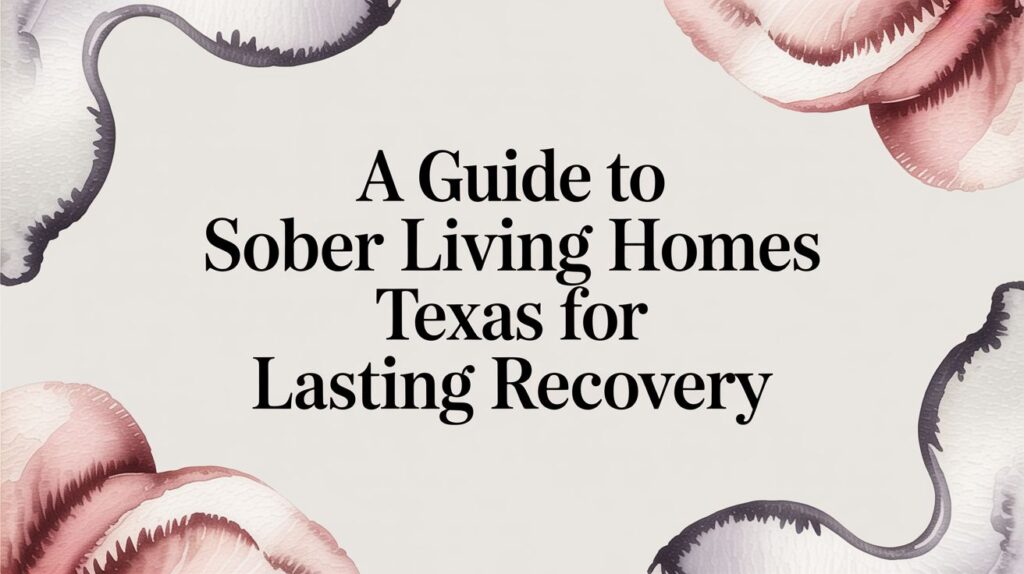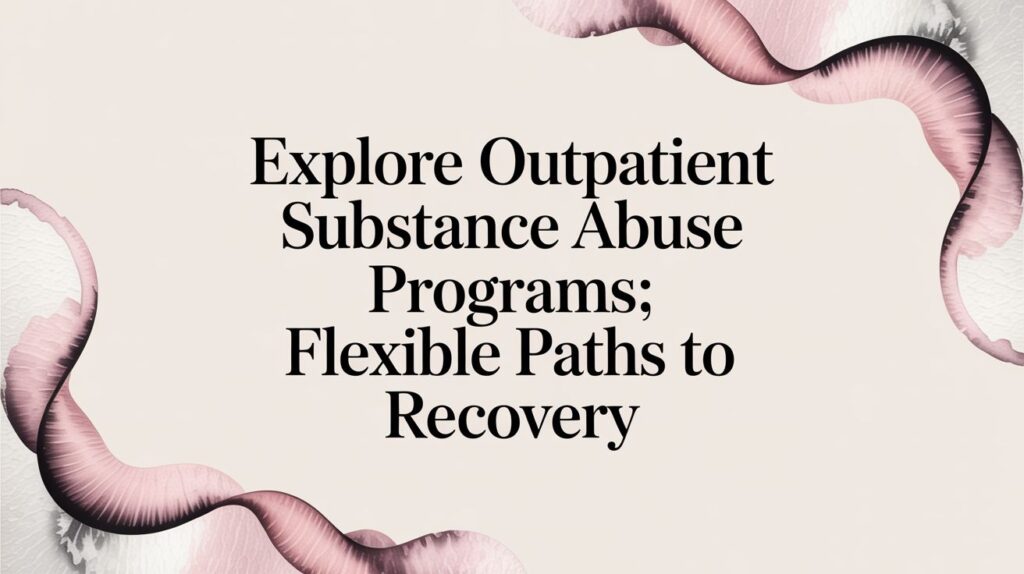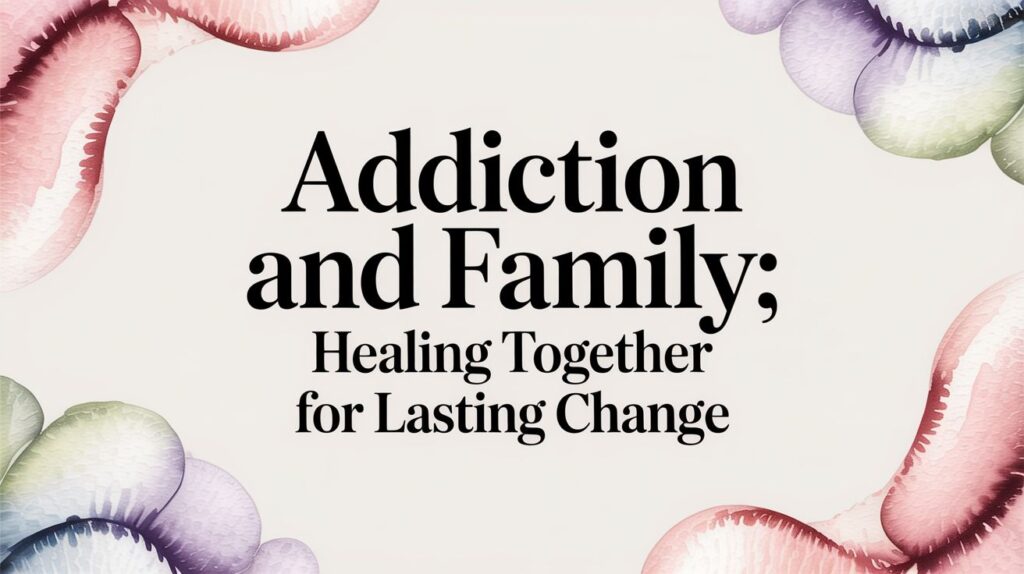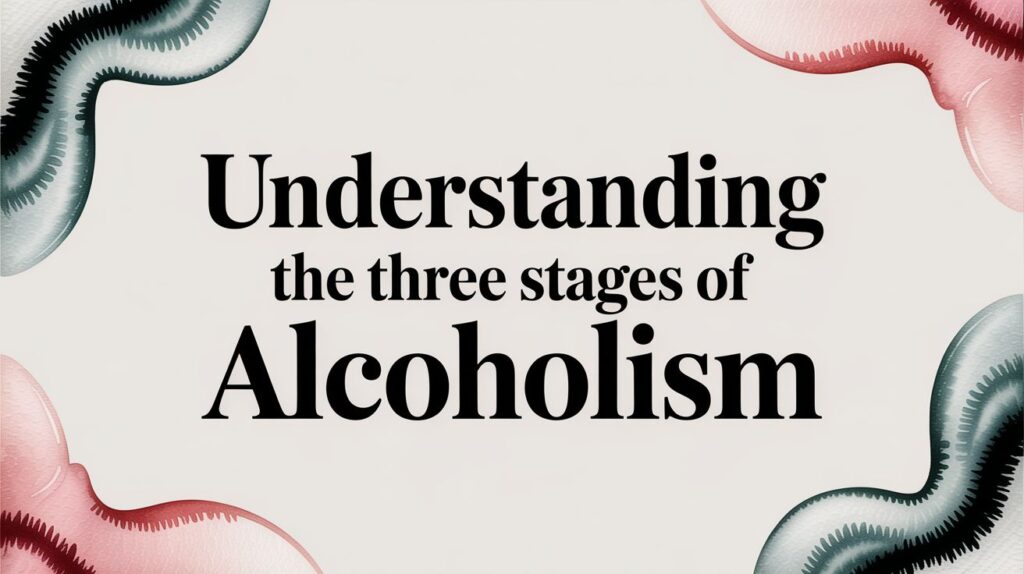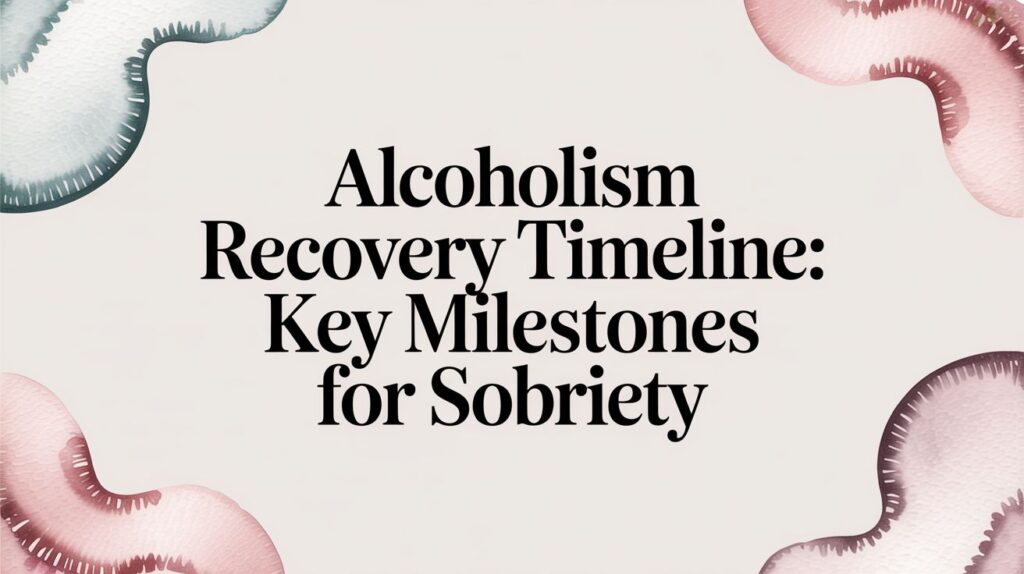So you’ve decided to stand by someone you care about through their recovery. That’s a huge, courageous step. But knowing how to help without accidentally making things worse can feel like walking a tightrope.
Your instinct is probably to fix things, to manage their journey, but the most powerful thing you can do is shift your own mindset first. You're not their therapist, their sponsor, or their savior. Think of yourself as a lighthouse—a steady, compassionate presence they can count on.
Your real job is to be a source of stability and encouragement. This starts by moving away from any feelings of judgment or frustration and toward a place of genuine understanding. It gets a lot easier once you accept that addiction isn’t a moral failing; it’s a chronic brain disorder that literally rewires how a person makes decisions and controls their impulses.
So, What’s Your Role, Really?
To build a healthy support system that doesn’t burn you out, you need a few guiding principles. These aren't complicated rules but simple truths to ground your actions.
- Get Educated. The more you learn about the science behind addiction, the easier it becomes to offer empathy instead of blame. Understanding the psychological and physiological forces at play is a game-changer.
- Manage Your Expectations. Recovery is almost never a straight line. It’s a messy, winding road with good days and incredibly hard days. Accepting this helps you celebrate the small wins and handle setbacks with patience, not panic.
- Take Care of Yourself. Seriously. You can't pour from an empty cup. Supporting someone through this is emotionally draining, and if you’re not looking after your own mental health, you won’t be any good to them.
The scale of this challenge is immense, highlighting why informed support is so critical. For instance, alcohol use disorder contributes to 2.6 million deaths globally each year, which is 4.7% of all mortality worldwide. Recognizing addiction as a brain disorder that impairs self-regulation is the key to adopting a more effective, compassionate approach. You can discover more insights about common addictions on ValleySpringRecovery.com.
Let’s quickly summarize these core ideas. Think of them as the pillars holding up your entire support strategy. They’ll keep you grounded when things get tough.
Key Pillars of Effective Recovery Support
| Support Pillar | What It Means in Practice |
|---|---|
| Educate Yourself | Reading articles, attending support groups (like Al-Anon), and learning what addiction actually does to the brain. |
| Manage Expectations | Celebrating one sober day as a huge win and not panicking if a relapse happens. It's part of the process. |
| Prioritize Your Wellbeing | Setting boundaries, seeing your own therapist, and making time for hobbies that recharge you. |
| Be a Stable Presence | Offering consistent, non-judgmental love and support, regardless of the ups and downs. |
Ultimately, your role isn't to control their journey. It's to create a safe, stable environment where they feel empowered to do the hard work themselves. Finding that balance is everything—it's how you provide support that genuinely helps without accidentally enabling the very patterns you're all trying to break.
By embracing these principles, you become a powerful, positive force in their long-term healing.
Communicating with Compassion and Clear Boundaries

This is where the rubber meets the road. Meaningful support hinges on a tricky balance between open-hearted compassion and firm, healthy boundaries. For many of us, this means learning a whole new way to talk—one that’s both honest and loving, yet crystal clear about what we will and will not accept.
Finding this sweet spot is essential. It protects your own well-being while allowing you to be a powerful force for their healing. This isn’t about building walls; it’s about creating a relational structure built on respect and accountability for everyone. Without boundaries, even the best intentions can curdle into enabling.
The goal is to create a dynamic where your loved one feels heard and understood without you unintentionally fueling the very patterns you both want to leave behind.
Master the Art of "I" Statements
One of the most powerful tools you can bring to a tough conversation is the "I" statement. This simple shift in language lets you express your feelings and needs without blaming or accusing, which almost always puts the other person on the defensive.
Instead of saying, "You never think about how your actions affect me," which just sounds like an attack, you flip the script.
For example: "I feel worried and sad when I don't hear from you, because I care about your safety."
This structure is so effective because it’s your truth—you're just stating your own emotional reality. It opens the door for a real conversation rather than slamming it shut with blame. The focus moves from their screw-ups to your personal experience.
Practice Active Listening
Just as important as expressing yourself is learning to truly listen. Active listening is way more than just waiting for your turn to talk. It's about making a conscious effort to hear not just the words but the full message being communicated.
This means putting your phone away, making eye contact, and showing you’re engaged. When they share something difficult, your job is to validate their feelings—even if you don't agree with their actions or perspective.
A simple phrase like, "It sounds like that was incredibly difficult for you," can make a world of difference. It shows you’re hearing their struggle, which helps them feel less alone on their journey.
Navigating Common Scenarios with Boundaries
Setting and holding boundaries is one of the hardest—and most vital—parts of this process. It's where your love and support become truly effective. You can learn more about the specifics in our guide to setting boundaries in recovery.
Here’s a look at a few common situations you might face:
- Responding to a Request for Money: Instead of a flat "no," which can feel shaming, you can say, "I love you and I want to support your recovery, but I can't give you money. I am happy to buy you groceries or drive you to a meeting." This shifts the support from financial to practical.
- Discussing Past Hurts: When they are ready to talk, a healthy boundary sounds like this: "I am willing to talk about what happened, and I need you to know how much it hurt me. I want us to heal, and that starts with honesty." You're open, but you're not sweeping your own pain under the rug.
Ultimately, effective support recognizes that evidence-based treatment and a strong social network are what drive better outcomes. Social stigma still keeps too many people from getting the help they need. Your role is to create a judgment-free space that frames addiction as a chronic brain disorder, not a moral failure. As the need for addiction treatment grows, informed advocates who can help a loved one stick with treatment and reduce relapse risks become more critical than ever.
Offering Practical Support Without Enabling
Walking the line between genuinely helping and accidentally enabling is one of the toughest parts of this journey. Your gut instinct is to shield your loved one from pain, but real support is about empowering them to build their own strength and stand on their own two feet.
Enabling feels like helping in the moment, but it cushions them from the natural consequences of their actions. Over time, this can quietly sabotage their recovery by removing the very experiences that spark change.
Constructive Support vs. Enabling Behavior
So, what’s the difference in the real world? It’s all about shifting from short-term fixes to long-term empowerment. One builds resilience; the other creates dependency.
The core question to ask yourself is: Does this action help them learn to handle life on their own, or does it make it easier for them to continue unhealthy patterns?
Let’s look at a few common scenarios:
- Supportive Action: Offering them a ride to a 12-step meeting or a therapy appointment. This directly supports their recovery work and shows you’re a true ally in their healing.
- Enabling Behavior: Calling their boss with a made-up excuse when they’re too hungover or high to show up for work. This shields them from a direct consequence that could otherwise motivate them to change.
Here’s another example that comes up all the time:
- Supportive Action: Suggesting a new sober activity you can do together, like checking out a new hiking trail, catching a movie, or trying a cooking class. This helps them build a new, fulfilling life where substances aren't the main event.
- Enabling Behavior: Handing over cash for "rent" or "groceries" when you have a strong suspicion it will go toward drugs or alcohol. This removes the financial accountability that is often a powerful catalyst for seeking help.
The image below shows a simple, supportive way to communicate when they're struggling.
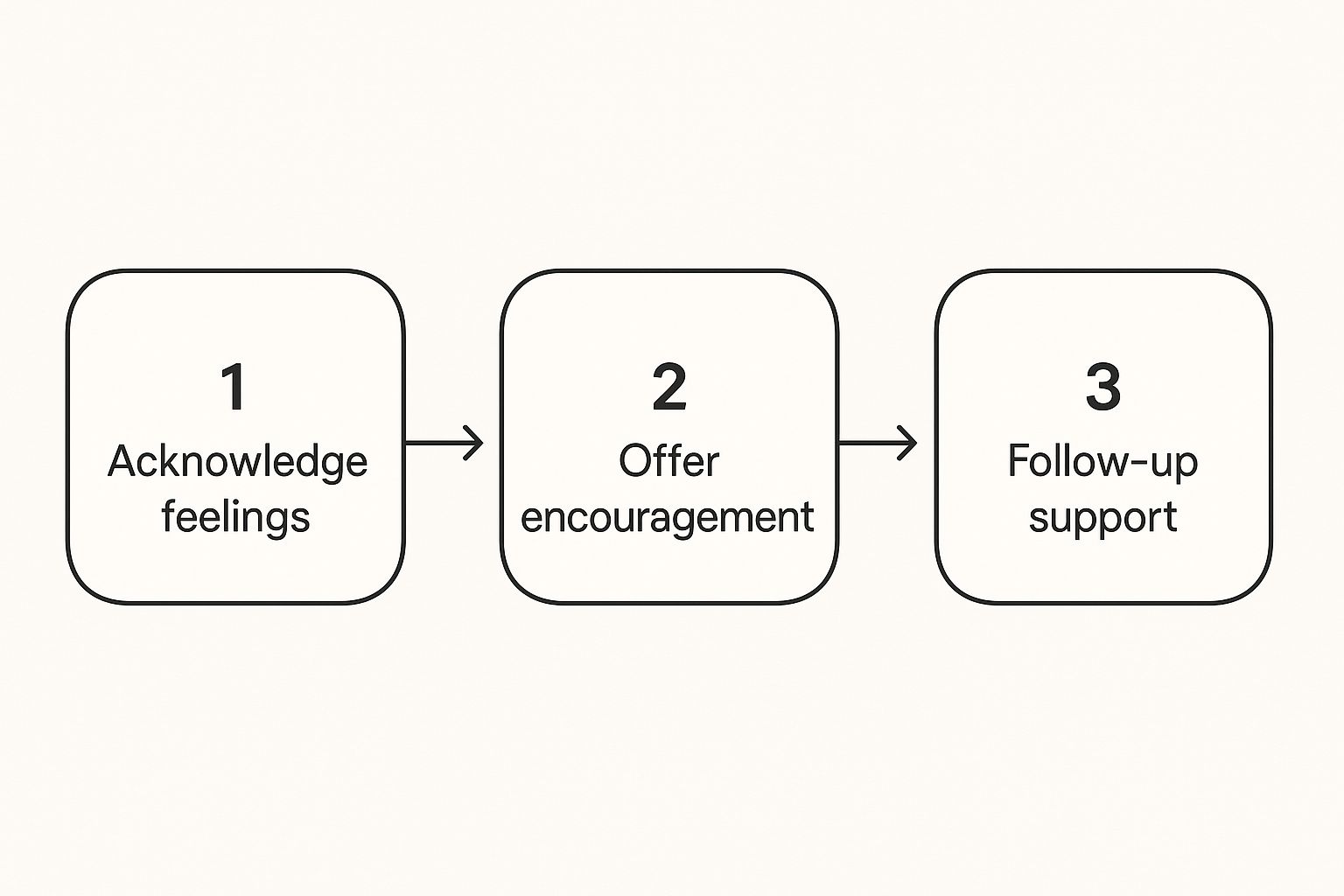
This approach is powerful because it validates their feelings first, offers encouragement, and then follows up with tangible, healthy help.
Making Empowering Choices
It’s not just about what you stop doing; it's about what you choose to do instead. Every interaction is a chance to reinforce their strength and capability. For partners, this dynamic can be especially complicated, which is why finding dedicated support groups for spouses of alcoholics can be a game-changer.
Here's a quick guide to help you shift your responses:
| Instead of This (Enabling)… | Try This (Supporting)… |
|---|---|
| Making excuses for their behavior. | Allowing them to face the natural consequences. |
| Paying off their drug-related debts. | Helping them create a budget to manage their own finances. |
| Ignoring when they cross a boundary. | Calmly and clearly restating your boundaries every time. |
| Taking over their responsibilities. | Encouraging them to handle their own tasks and obligations. |
True support means letting them experience the discomfort that comes right before growth. It's about trusting that they have the strength to get through challenges, with your encouragement as a safety net—not a shield.
Ultimately, your goal is to foster their independence. By offering practical, constructive help, you become one of the most powerful and loving allies they have on their journey to a healthy, sober life.
Navigating Setbacks and Celebrating Progress

Recovery isn’t a straight shot to a finish line. It’s a real-world journey, full of incredible moments of growth and tough days that feel like a step backward. Learning how to handle both the setbacks and the successes is one of the most vital parts of providing meaningful support.
Relapse can be one of the most disheartening parts of this process, but it’s crucial to frame it correctly. It’s not a failure or proof that recovery isn’t working. It’s a common part of managing a chronic health condition. Your reaction in this moment can either build a bridge back to treatment or create a wall of shame.
Responding to a Setback with Compassion
If you find out a relapse has happened, your first move should come from a place of compassion, not anger. I can almost guarantee your loved one is already drowning in guilt and disappointment. Piling on blame only makes it harder for them to ask for help.
Instead, keep your focus on the next right step. Keep the conversation calm and centered on your concern for their well-being.
- Use “I” statements: "I'm worried about you, and I want to help you get back on track."
- Encourage immediate action: "Let's call your sponsor or therapist together right now."
- Reinforce your boundaries: "I love you, and because of that, I can't ignore this. My support is for your recovery."
This approach communicates that your love is constant, but your support is conditional on their commitment to getting help. This dynamic is central to healthy recovery and relationships, ensuring you remain an ally without enabling destructive behavior.
Celebrating Every Victory Along the Way
Just as crucial as managing setbacks is celebrating progress. Acknowledging milestones reinforces positive behavior and builds the momentum needed to keep moving forward. These celebrations don't have to be grand gestures; what matters is that you notice and value their hard work.
Victories in recovery come in all sizes, and every single one deserves recognition.
- Time-based milestones: Hitting 30, 60, or 90 days of sobriety is a huge deal. Acknowledge it with a heartfelt card, a special dinner, or simply by telling them how proud you are.
- Behavioral wins: Maybe they successfully navigated a high-risk situation, like a work party where alcohol was present. Or maybe they were just honest about a craving. These are massive signs of growth.
- Daily consistency: Simply showing up for meetings, therapy, and commitments day after day is the real work of recovery. Recognizing this validates their daily grind.
Acknowledging their effort reminds them that their hard work is seen and valued. Simple words like, "I've noticed how committed you've been to your meetings lately, and it's really inspiring," can be incredibly powerful. It helps them build self-esteem and see themselves as someone capable of lasting change.
Prioritizing Your Own Wellbeing and Self-Care

It’s an easy trap to fall into. You pour every last ounce of energy into your loved one’s recovery, leaving absolutely nothing for yourself. But here’s the reality: supporting someone on this journey is a marathon, not a sprint. If you burn out, you can’t offer the steady, reliable presence they need to lean on.
Think of it this way: prioritizing your own wellbeing isn't selfish. It’s actually the most strategic and loving thing you can do. It’s what makes your support sustainable for the long haul. Without it, you’re on a fast track to compassion fatigue or full-blown burnout, which almost always leads to resentment and exhaustion.
Recognizing this truth is the first step. The next is to take intentional, actionable steps to protect your own mental, emotional, and physical health.
Recognizing the Signs of Burnout
So, how do you know if you’re running on empty? Burnout doesn't just show up overnight. It’s more like a slow fade, caused by prolonged, unrelenting stress.
Keep an eye out for these common signs in yourself:
- Emotional Exhaustion: Feeling constantly drained, cynical, or just detached from the situation.
- Irritability and Impatience: Snapping over small things or feeling perpetually frustrated with your loved one or the recovery process itself.
- Physical Symptoms: Dealing with frequent headaches, sleep problems, or changes in appetite that don't have another clear cause.
- Loss of Identity: Feeling like your entire life revolves around their recovery, with no space left for your own interests, friends, or needs.
If these start sounding eerily familiar, it’s a clear signal that you need to invest in your own care—and fast.
Taking care of yourself is a non-negotiable part of this process. You are a vital component of their support system, but you cannot be their only one. Your health matters just as much.
Actionable Strategies for Self-Preservation
Protecting your wellbeing requires a conscious, deliberate effort. This means scheduling self-care with the same seriousness you’d give a doctor’s appointment for your loved one.
First things first: seek your own support network. You also need a safe space to vent, process your feelings, and feel understood. Community groups like Al-Anon and Nar-Anon are filled with people who truly get what you’re going through. Individual therapy can also provide invaluable tools for navigating this complex dynamic. These resources can help you develop essential coping skills for substance abuse from your unique perspective as a supporter.
Next, you have to carve out protected time for yourself. Re-engage with hobbies that actually recharge you, whether that’s hiking, reading a book, or just grabbing coffee with a friend who lets you talk about anything but recovery. Remember, you have a life and an identity completely separate from their journey. Nurturing it is essential.
This kind of personal support becomes even more critical when you zoom out. In 2023, an estimated 316 million people between 15 and 64 used drugs globally. As external stressors like economic hardship rise, so does the risk of relapse, making your stable, compassionate presence more critical than ever. Supporting someone in recovery means advocating for their care while also fiercely protecting your own wellbeing. You can learn more about how global instability impacts the drug problem from the UNODC.
Common Questions About Supporting Someone in Recovery
Loving someone in recovery means navigating a lot of emotional gray areas and tricky situations. It's completely normal to have questions and feel unsure about the "right" thing to do. Below are some direct answers to the questions we hear most often from families.
What Should I Do If I Suspect a Relapse?
First, take a breath. Your approach in this moment is critical, and the goal is to be a bridge back to help, not a source of shame that pushes them further away.
Find a calm, private moment to talk. Frame the conversation from a place of genuine concern, not accusation. This is where "I" statements become your best tool because they're nearly impossible to argue with.
For instance, instead of saying, "You're using again, aren't you?" try something like, "I'm worried about you. I've noticed a few changes lately that remind me of how things used to be, and my gut is telling me something is wrong."
This opens a conversation instead of starting a fight. Remind them that a slip doesn't erase all their hard work. The most important thing is getting them reconnected with their support system—their sponsor, therapist, or treatment program—right away. Your job isn't to lecture; it's to gently guide them back to the experts.
How Can I Help If They Refuse Treatment?
This is one of the most painful and frustrating situations a family can face. You can't force an adult into recovery, but you absolutely can—and should—control your own actions and responses.
This is where your boundaries become your most powerful tool for change.
A healthy boundary sounds like this: "I love you, and I will always support your recovery. But I can't give you any more money or call your boss to make excuses for you. When you're ready, I will be the first one to help you find a treatment center or drive you to a meeting."
This isn't about punishment; it's about clarity. You're making it clear that your support is tied to their healing, not their addiction. This is also the point where groups like Al-Anon become invaluable. They provide a community of people who get exactly what you're going through and can offer practical tools for protecting your own peace of mind.
Should We Remove All Alcohol from the House?
Yes. Especially in the early months of recovery, the answer is an unequivocal yes.
Creating a safe, sober home environment is one of the most practical and powerful ways to show your support. It removes a constant, unnecessary temptation and eliminates a daily battle of willpower for your loved one.
Think of it this way: their home needs to be a sanctuary for healing, not a minefield of triggers. This action sends a clear message that you are all in this together. While you might be able to revisit this down the road, the immediate priority is making their environment as supportive as possible.
How Do I Rebuild Trust After So Many Broken Promises?
Trust isn't rebuilt with words; it's rebuilt with consistent, reliable actions over a long period of time. Apologies and promises mean very little when they've been used to manipulate or deceive in the past.
Be patient with them, but more importantly, be patient with yourself. Healing from betrayal takes time. It’s okay to have your guard up.
Be clear about what you need to see to feel safe again. This could be things like sustained honesty, accountability for their actions without defensiveness, and a visible, active commitment to their recovery program. Trust will grow organically from their demonstrated reliability, not from their promises of future change. Remember, healing is a two-way street. You may need your own support, like therapy, to process the hurt you've experienced.
At Altura Recovery, we understand that addiction impacts the entire family. Our programs include family workshops and therapy to help everyone heal and build a strong, healthy support network for the future. Contact us today to learn how we can help.


